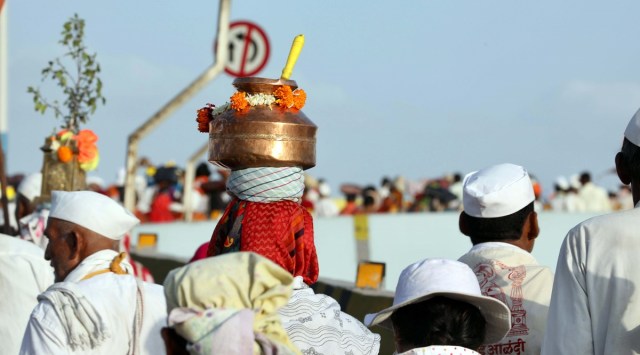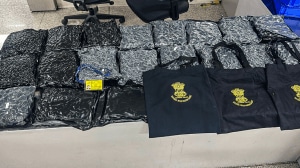Pandharpur Temples Act: HC seeks govt reply to Swamy’s PIL on temple administration
In the PIL, Subramanian Swamy had claimed that the Maharashtra government had taken over the administration of the town’s temples in an arbitrary manner.
 The PIL stated that the government, by taking control over the Pandharpur temple, is affecting the rights of Hindus to profess, practise, and propagate their religion. (Express photo by Arul Horizon/File)
The PIL stated that the government, by taking control over the Pandharpur temple, is affecting the rights of Hindus to profess, practise, and propagate their religion. (Express photo by Arul Horizon/File) The Bombay High Court on Monday directed the Maharashtra government to file its reply in a week to the PIL filed by BJP leader Subramanian Swamy challenging the Pandharpur Temples Act.
In the PIL, Swamy claimed that the Maharashtra government had taken over the administration of the town’s temples in an arbitrary manner.
The Maharashtra government through the Pandharpur Temples Act, 1973, had abolished all hereditary rights and privileges of ministrants and priestly classes for the governance and administration of the temples of Lord Vitthal and Rukmini in Pandharpur of Solapur district. It enabled the state government to control its administration and management of funds.
A division bench of Chief Justice Devendra Kumar Upadhyaya and Justice Arif S Doctor posted further hearing to September 13.
According to the PIL, Swamy had written to Chief Minister Eknath Shinde on July 7, 2022, saying that the temple affairs related to religious offerings and customs were “heavily mismanaged”, adding the same would have an adverse impact on Hindu religious sentiments and fundamental rights of the believers.
Swamy, a former Rajya Sabha member, said he had also written to then Governor Bhagat Singh Koshyari on December 18, 2022, to repeal the Pandharpur Temples Act.
The PIL stated that the government, by taking control over the Pandharpur temple, is affecting the rights of Hindus to profess, practise, and propagate their religion, and to manage Hindu Religious Endowments and their affairs in matters of faith.
Swamy had submitted that under Article 31 (A) (1) (b) of the Constitution, the government can take over the management of any property for a limited period either in the public interest or to secure its proper management. In the present case, it was in perpetuity and therefore it is unconstitutional, he argued.
During an earlier hearing, on behalf of the Maharashtra government, Advocate General Birendra Saraf submitted that the present challenge cannot be sustained as the law was dealt with by the Supreme Court in the past and that there is no acquisition by the state government in this case.
The High Court pointed out that a constitutional amendment was made in 1978 after the law came into force and questioned why it has been assailed after “such a long time”.
On Monday, an intervenor, Bheemacharya Balacharya from the Dharma Rakshak Trust, sought the execution of a land decree he claimed is related to the Pandharpur temple. However, the court found his intervention plea “unnecessary” and rejected his application.







